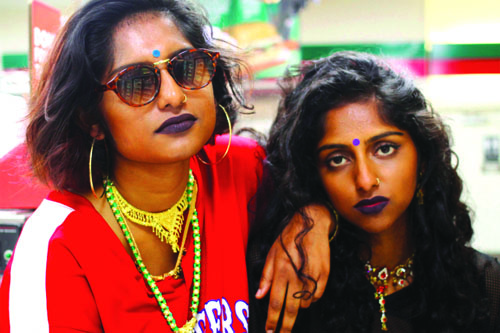
Supporting online campaigns against colourism, like #unfairandlovely, won’t stand a chance unless we shred our inhibitions. Reality is a quite far removed from the compassionate goodness that pervades the virtual world, says RITU PANDEY

Remember Feb 3, 2016? A 21-year-old Tanzanian woman, along with her male companion, was beaten and stripped of all her clothes by a mob in Bengaluru, after they assumed she was part of an incident in which a Sudanese man had run over a local woman. The mob torched their car, pummeled a chivalrous local who offered the woman his shirt to cover herself and when she tried to get on a bus in order to escape the assault, people on the bus pushed her back into the assaulting mob. The police stood and watched refusing to register the woman’s complaint until she produced the hit-and-run driver.
Then on March 10, 2016, three students from the University of Texas challenged the widely-held belief in many parts of the world that fair skin is the most attractive with their online campaign. It started with a photo shoot of two sisters of Sri Lankan-origin, Mirusha and Yanusha Yogarajah by a black student Pax Jones. Their global campaign on social media against colourism encouraged dark-skinned women from around the world to post photos of themselves on Instagram, Twitter and Facebook with the hashtag #unfairandlovely.
Don’t Miss: Stop objectification of women in popular culture right now!
Before you begin questioning the link between the two news items, let me clarify that this is just to explain how deep our colour prejudices run and how violent they can get even in a city that prides itself at India’s “Silicon Valley.” Now, what are the chances that among the hundreds “liking” and appreciating the photos of the gorgeous women in the #unfairandlovely campaign, there won’t be even one of those who pushed the poor Tanzanian off the bus back into her attackers. Even without any idea of probability, chances of that happening can’t be completely ruled out given the democratisation of the virtual space in the smartphone era. Would that mean the people posting those “likes” wouldn’t treat the next African or the next dark women they come across with the hostility the Tanzanian was treated with? Chances are, they still will (even without getting into genders here). And what are the chances that even the ladies posting their lovely pictures and heartwarming stories wouldn’t become milder versions of the “fair unpleasantness” that worries them so much with the next woman they come across who is a shade darker-than-them? One can’t guarantee that either since reality is a quite far removed from the compassionate goodness that pervades the virtual world. Ever noticed the sense of comparison that silently starts building inside us each time we’re in the company of someone darker than us. The way we look at them – our muted relief, elation, even shock. That comes from inside us. Even while acknowledging that #unfairandlovely urges us to love our natural self, that social conditioning is hard to shake off. We haven’t managed that in over a century since we started discussing “colour.” It’s harder now when the virtual world (along with the mass media) itself has come to hallmark seriously flawed benchmarks of beauty and physical perfection.
Don’t Miss: I’m not fine with the concept of ‘period leave’
Because more than simply posting nice photos of yourself, it requires the effort of introspection, getting rid of one’s own extremely deep set psychological prejudices and preventing stereotypical judgments about people. Until that happens, social media is the Utopia where every individual is the epitome of perfection and goodness just waiting to bring down the other who errs.
Join us on Instagram, Twitter and Facebook!
(The views and opinions expressed in this article are those of the author and do not necessarily reflect the official policy or position of Born of Web. The writer is solely responsible for any claims arising out of the content of this article. We encourage independent thoughts and articles by our readers. Have a say in youth-centric matters, write to <editor@bornofweb.com>)










